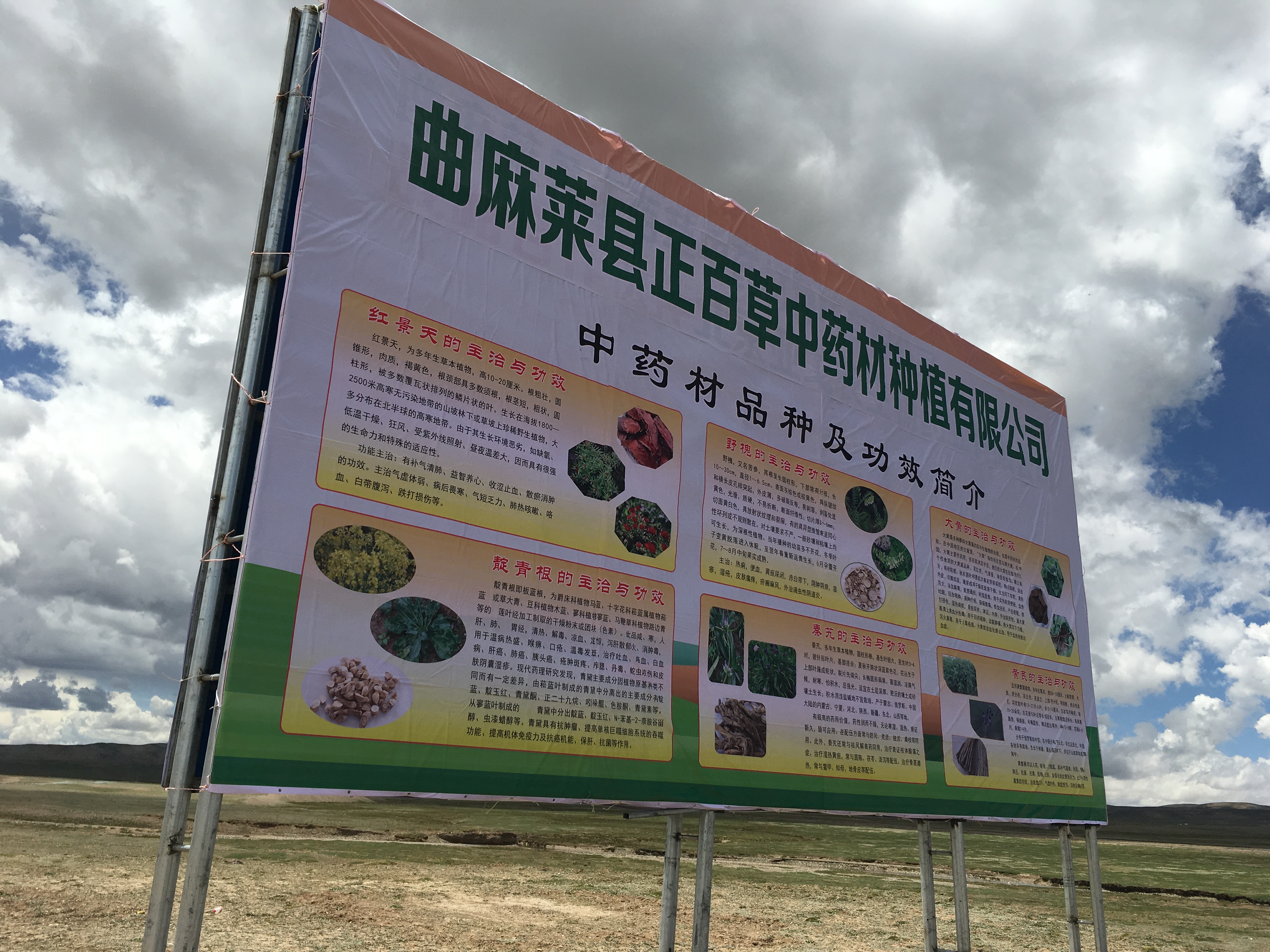So is there a way develop the economy, give social benefits to the local people and protect the environment? In Li's eyes, a solution lies in Maduo township, where some six hours' trek through bumpy roads, mountains and rivers can reach from the county downtown. He sees potential in a large Chinese herbal plantation there.
Video: The harsh road conditions along the way to Maduo township.
Oddly, it used to be a place which by no means had any connection with “hope." "No one would want to come, and only old horses know the way," Tuju Luozhoujiangcuo, secretary of the Party Committee of Maduo township, said. There are no roads, no electricity, and no network signals. In summer, even off-road vehicles may fall into a marsh at any time.
Because of the climate, rodent infestation and historical overgrazing, the desertification of the land is particularly serious, with nearly 60 percent of the grasslands desertified. Without good grazing grassland, nearly 70 percent of the herdsmen in the whole township moved to Golmud and other places, added Tuju.
But this started to change two years ago when Zhengletang Biotechnology Group came and set up its subsidiary Qumalai Zhengbaicao Traditional Chinese Medicine Planting Co Ltd, which plants isatis root and sophora flavescens root on about 3,333 hectares of uncultivated land.

Photo: The billboard indicates what medical functions the planted herbs have.
As the pioneer of alpine herbal plantations, Zhengbaicao faces enormous challenges. In addition to the lack of infrastructure, raising herbs in cold areas with an average altitude of 4,500 meters is by no means an easy task. The first thing the company needed to figure out was the feasibility of its plan.
Video: A part of the base land is planted with isatis root.
With the help of experts from various institutions, including the Chinese Academy of Sciences and China Agricultural University, after a long period of research and tackling key scientific and technological bottlenecks, the company has mastered the necessary cultivation, purification and extraction technology.
After more than two years, the first experimental batch of plants has been successful. Li said that the old idea that Qumulai was too high for planting had been disproven.
In fact, Maduo township's high altitude has proven to be an advantage for herbal plantations as it offers a large area of available uncultivated land, and excellent water quality and soil. Herbs grown here will be pollution-free.


